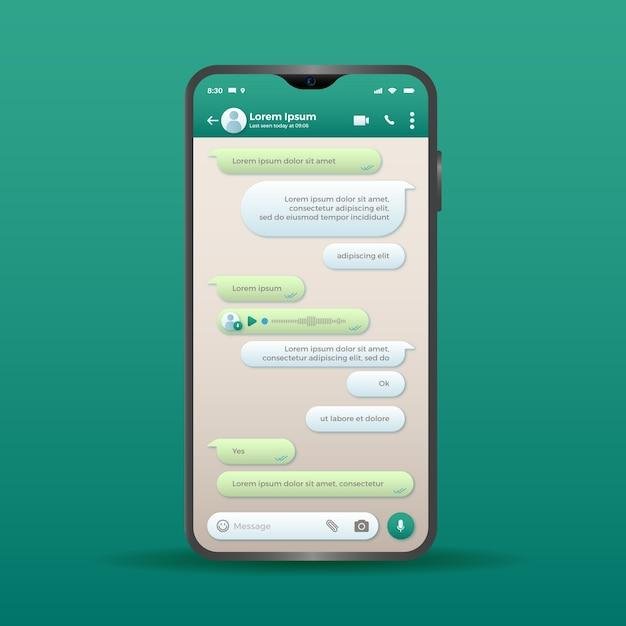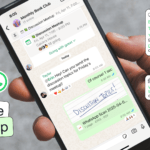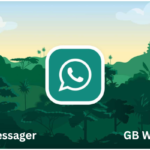Click here to buy secure, speedy, and reliable Web hosting, Cloud hosting, Agency hosting, VPS hosting, Website builder, Business email, Reach email marketing at 20% discount from our Gold Partner Hostinger You can also read 12 Top Reasons to Choose Hostinger’s Best Web Hosting
Not everyone you need to reach uses WhatsApp — and asking them to download an app or register just to exchange a single message is a real friction point. That friction means missed bookings, slow customer replies, and awkward “I’ll text you later” moments. WhatsApp’s emerging Guest Chat Feature in WhatsApp aims to remove that barrier: instead of forcing installs, users may soon send a one-off invite link that opens a private chat in the browser — quick, low-friction, and (according to WhatsApp’s long-standing promises) end-to-end encrypted. The change could make coordination, customer replies, and event check-ins feel instant again — without leaving your current workflow.
Click on this CMF Buds Wireless Bluetooth Earbuds to make voice calls from your WhatsApp for noice free talking with your family and friends.
What’s actually new — the facts
WhatsApp is testing a “guest chats” mode in recent Android beta builds (spotted in the 2.25.22.13 beta), which would let a WhatsApp user start a private conversation with someone who does not have the WhatsApp app or an account. The discovery and details were first reported by WABetaInfo during beta analysis.
Early reports suggest guest chats will rely on shareable links: the WhatsApp user generates an invite and the recipient opens it in a browser interface to message back. The current beta appears focused on one-to-one text chats rather than full media/call parity.
WhatsApp’s public stance has long emphasized end-to-end encryption as a foundational promise for messages. Any guest-chat experience will sit alongside (and raise questions about) those encryption guarantees and how they’re implemented in browser or link flows.

How it will work (simple user flow)
You (WhatsApp user) tap “New guest chat” or “Invite guest” in the app.
WhatsApp generates a temporary link or token tied to that chat.
You send the link via SMS, email, or another app.
The recipient opens the link in a secure web view or browser and can reply in a private, single-session thread.
When the conversation ends (or after a timeout), the guest access may expire or be restricted — keeping the guest session temporary.
Note: the exact UI and limits (message length, media support, session lifetime) are still in beta and may change before public release.
Why this matters — real world use cases
1. Small businesses and customer replies
Imagine a café that confirms pickup by sending a quick guest link instead of asking customers to install an app. The result: faster confirmations and fewer lost orders.
2. Events and check-ins
Organizers could send a guest link to attendees that lets them confirm arrival, receive a ticket QR, or ask an organizer a question — without forcing pre-event installs.
3. Emergency or one-time contact
Volunteers, field workers, or aid organizations could provide a temporary channel to people in the field who don’t have WhatsApp installed.
4. Sales and lead capture
A salesperson can add a guest link to a landing page or business card — visitors ask quick questions without the friction of signing up.
Mini case study (hypothetical / plausible):
A local clinic tested guest links at vaccine drives: volunteers sent a link via SMS to people who didn’t use WhatsApp; recipients completed intake textually, and staff confirmed appointment slots immediately. No app installs, fewer data-entry errors, and faster throughput.
(I label the case study above as an illustrative example based on early feature behavior and likely use; it’s not a reported pilot.)
Privacy — what to watch for (and what WhatsApp says)
WhatsApp’s official documentation repeatedly emphasizes end-to-end encryption: messages are designed so only the sender and recipient can read them. That foundation matters here because guest chats introduce a new endpoint (a browser session) and an ephemeral identity model. WhatsApp will need to show how encryption keys, session authentication, and link-expiry are handled to preserve privacy guarantees in guest scenarios.
WhatsApp Scam Alert: Don’t Fall for the “Read More” Trap Spreading Malware
Key privacy questions to watch:
Are guest chats encrypted end-to-end the same way as normal WhatsApp chats?
Where (if at all) is metadata stored and for how long?
Can users verify guest session keys or confirm contact identity?
What protections exist against link re-sharing or unauthorized access?
Regulatory context — why Meta is rolling out features like this
The EU’s Digital Markets Act (DMA) and similar regulatory attention pushed Meta to plan broader messaging interoperability and alternative access flows. While guest chats are not the same as third-party interoperability, they fit a larger product strategy: lower barriers to connection and compliance with regulators who demand less walled-garden behaviour. Expect testing and staggered rollouts, with Europe often getting features earlier because of DMA deadlines. (Meta has published engineering updates about interoperability under the DMA.)
Product limitations and likely constraints (based on beta signals)
Text-first at launch: early betas indicate guest chats may be limited to text only, with voice/video and some media disabled.
Temporary sessions: links likely have expiries to reduce abuse.
No cross-group support: guest chats are for one-to-one conversations, not group threads.
Verification challenges: verifying identity without an account is harder — businesses will need extra verification steps (booking IDs, OTPs).
New perspective — three consequences many outlets haven’t focused on
Lowered onboarding costs for businesses — Guest links could shift small-business customer acquisition economics. Instead of investing in an app, firms can drive conversions inside a short chat session that solves a single task (booking, confirmation). That’s a structural change for local commerce.
A hybrid identity problem for trust — Platforms will need to invent lightweight, user-friendly verification methods for anonymous browser users. Expect new UX patterns: short verification codes, disposable user badges, or temporary photos for identity checks inside the guest thread.
Shift in privacy vs. access tradeoffs — If guest chats become widely used, regulators and privacy advocates will scrutinize metadata handling even more heavily. WhatsApp may respond by publishing more transparent policies or new UI cues (e.g., “This chat is temporary — data retained X days”) to maintain user trust.
Key Takeaways
Guest Chat Feature in WhatsApp is under beta testing and would let WhatsApp users message people who don’t have the app.
Early beta indicates a link-based, one-to-one, text-focused guest experience; media and calls may be limited initially.
WhatsApp’s encryption posture matters: guest flows must preserve end-to-end encryption guarantees or face scrutiny.
The feature could meaningfully lower onboarding friction for small businesses, events, and one-off communication scenarios.
Watch for verification UX, session expiry rules, and regional rollout sequences driven by regulations like the DMA. Engineering at Meta
FAQs (People Also Ask)
Q: When will Guest Chats be available to everyone?
A: As of the beta reports, the feature is in early Android testing. WhatsApp has not announced a public release date; expect staged rollouts after broader testing.
Q: Will guest chats be end-to-end encrypted?
A: WhatsApp publicly commits to end-to-end encryption — but the technical details for guest browser sessions are not yet published. Watch WhatsApp’s blog for an official implementation note. WhatsApp.com
Q: Can businesses use guest chats for customer support?
A: Yes — guest links are especially well-suited to one-off customer interactions (confirmations, ticketing). Businesses should plan verification flows and set clear expiry/retention rules.
Q: Will guest chats let you join groups or send media?
A: Early reports show one-to-one text chats. Media, calls, and group access appear to be limited or excluded in initial betas.
2025 WhatsApp Updates Roundup: New Features for Chats, Calls & Channels
Conclusion
The Guest Chat Feature in WhatsApp is a practical answer to a familiar problem: how to talk to someone once — or quickly — without turning them into a permanent user. For businesses, event planners, and anyone who has ever lost a customer to install friction, that’s promising. But the real test will be whether WhatsApp can deliver this ease without diluting the privacy and encryption people depend on.
If you run a small business or manage events, consider how a temporary chat link could simplify bookings or check-ins — and follow the WhatsApp beta notes (and SmashingApps coverage) so you can pilot the idea when the feature arrives. Subscribe to SmashingApps for hands-on guides.
Now loading...






